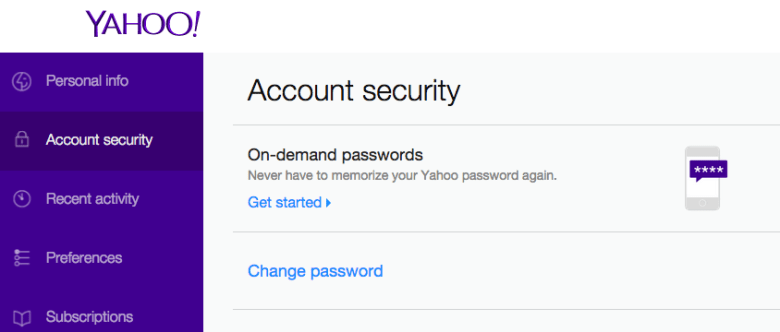Yahoo today announced the launch of a new feature security. The codes access Yahoo On-Demand είναι από σήμερα διαθέσιμοι στις Ηνωμένες Πολιτείες. Το νέο χαρακτηριστικό θα σας επιτρέπει να κάνετε log in στο account each time with a unique code that Yahoo will send to your mobile.
As of today, anyone who is connected to the Internet with IP from the US may have on-demand password options depending on their Yahoo account settings.
The characteristic Yahoo On-Demand Passwords can be used in other countries, provided that you use a VPN or a mediation server. There are reports stating that the company is sending SMS messages that contain passwords outside of the US as long as the IP you used to sign in to your account is from the US.
For the average user, the Yahoo On-Demand Passwords feature can improve security. It protects not only against weak user-chosen passwords, but also when passwords are stolen via techniques phishing.
Experienced users, on the other hand, probably won't benefit as much from the new feature. If someone has already chosen a secure password connections, and uses some kind of password management app, but also two-factor authentication, then Yahoo's on-demand solution isn't all that revolutionary.
In conclusion, Yahoo's On-Demand passwords are a convenient solution for users who do not want to do much about Internet security. Installation is relatively easy, and right afterwards, you can consider yourself protected from many common Internet threats. It may be necessary, however, to create passwords for application accounts that do not support the new login feature.





